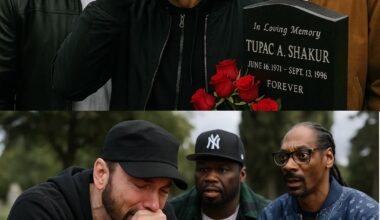In 1988, Queen was navigating one of the toughest chapters in their storied career. Just a year earlier, Freddie Mercury had learned of his HIV diagnosis—a sentence that, at the time, felt overwhelmingly final. The weight of the diagnosis was compounded by an unrelenting media frenzy. As the AIDS crisis intensified, Mercury’s celebrity became a double-edged sword, casting a harsh spotlight on his private struggles and making fame feel like a punishment.
Freddie Mercury’s life was marked by constant challenges born of prejudice. His sexuality, illegal in the UK until 1967, forced him into a world of secrecy and caution. Even after laws changed, Mercury never “came out” in a traditional sense; he shaped his public persona on his own terms—bold on stage, yet protective and private off it. The love he shared with his partner remained guarded, a bittersweet reality that many queer individuals faced at the time.
The early 1980s AIDS epidemic not only devastated communities but also unleashed a surge of homophobia that further isolated those affected. The disease carried stigma, fueled by ignorance and fear, and the gay community suffered immensely, often rejected even in moments of greatest vulnerability.
Mercury himself became a target. In 1986, returning from vacation, he was bombarded by journalists at Heathrow Airport demanding to know if he had AIDS. Although he declared himself “perfectly fit and healthy,” the invasive scrutiny terrified him. When his health worsened, he kept his diagnosis a secret—even from his bandmates.
It was under these heavy shadows that Mercury recorded Miracle, Queen’s album that carried the emotional weight of his private battle. The album’s closing track—Was It All Worth It—stands as a haunting reflection on a life lived in the spotlight and the cost of relentless pursuit.
Opening with the poignant question, “What is there left for me to do in this life / Did I achieve what I had set in my sights?”, the song echoes the introspective thoughts of a man confronting his mortality. Far from despair, it conveys a sense of resolution, a final reckoning with a life of passion, struggle, and triumph.
Throughout the track, Mercury repeats the refrain: “Was it all worth it yeah yeah, giving all my heart and soul / Staying up all night, was it all worth it. Ooh living breathing rock ‘n’ roll this never ending fight,” culminating in a heartfelt affirmation: “Yes it was a worthwhile experience.”
Was It All Worth It is more than just a song—it’s a deathbed testament from one of rock’s greatest icons. It captures the essence of Freddie Mercury’s life: unapologetically bold, deeply human, and ultimately, profoundly triumphant.





